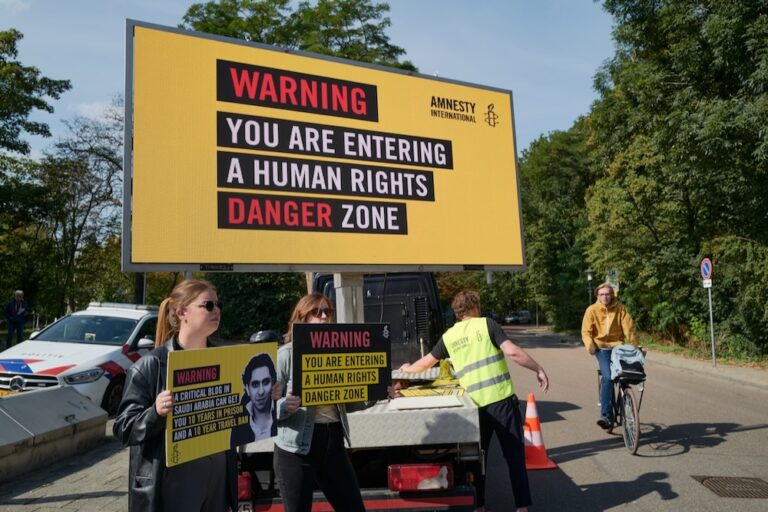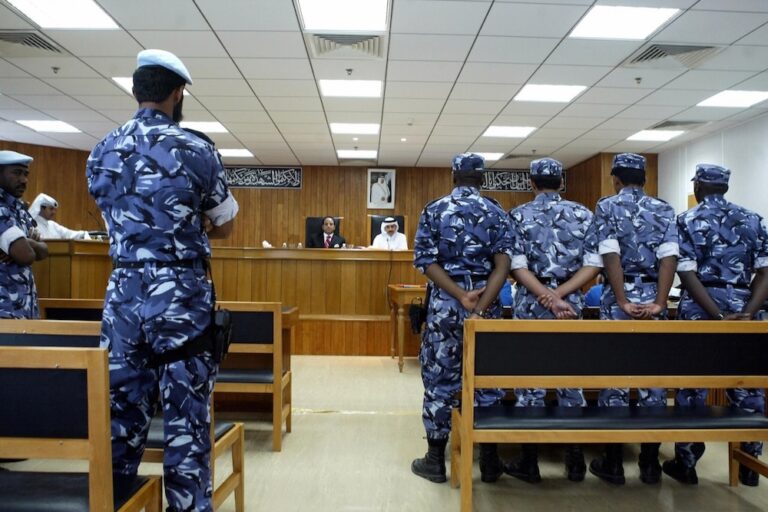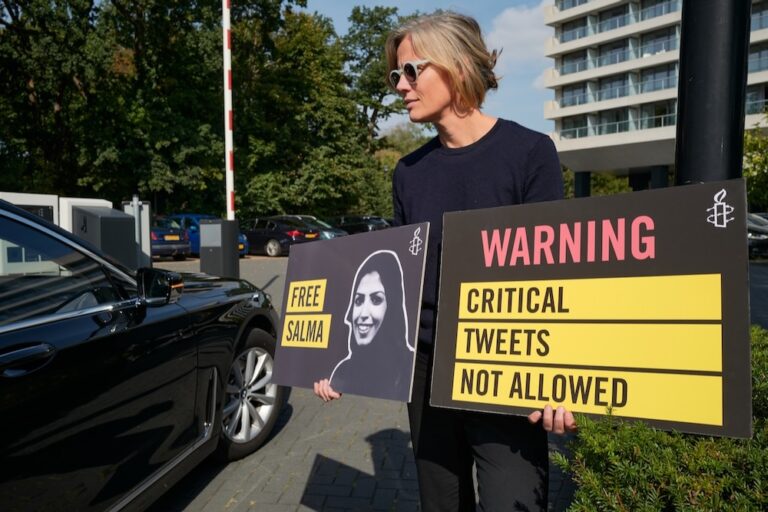Loujain Al-Hathloul, Aziza Al-Yousef and Eman Al-Nafjan will appear before the Specialised Criminal Court.
This statement was originally published on gc4hr.org on 12 March 2019.
The Gulf Centre for Human Rights (GCHR) has received reports confirming that Woman Human Rights Defender (WHRD) Loujain Al-Hathloul will face her first hearing tomorrow, 13 March 2019, before the Specialised Criminal Court (SCC).
Further reports confirm that WHRDs, Aziza Al-Yousef and Eman Al-Nafjan will also be brought to trial before the SCC on the same date,13 March 2019.
Al-Hathloul is a prominent Saudi WHRD, a social media figure, and one of the leaders of the right to drive campaign. She was arrested and detained on 17 May 2018 as part of a massive crackdown by the Saudi authorities against human rights defenders and women’s activists in the country. Al-Hathloul had previously been detained on 1 December 2014 for 75 days and again in June 2017 for her involvement in the driving campaign in Saudi Arabia.
The trial was announced shortly after the release of a joint statement by 36 United Nations (UN) member states led by Iceland during the 40th session of the UN Human Rights Council (UN-HRC) demanding the release of the Saudi WHRDs.
Al-Hathloul was initially held in incommunicado and has been denied access to all legal support. She has also reportedly been subjected to severe torture, both psychological and physical including sexual assaults. For more information, please refer to GCHR report, TREAT WOMEN KINDLY! REPORT ON TORTURE OF WHRDS INSIDE SAUDI PRISONS. The report confirms that torture is systematic and institutionalised within the Saudi legal system and is used to punish human rights defenders.
In recent days the Al-Hathloul family have spoken out on social media giving details of her torture and the denial of her rights to file complaints against her torturers as well as her right to legal representation and support.
Her brother Walid Al-Hathloul tweeted on 10 March 2019: “My sister @LoujainHathloul will be having her first trial session next Wednesday at 8am at the specialized court in Riyadh. This is the court that deals with terrorism cases.” He added: “She was not allowed to have a lawyer nor she was provided with the list of indictments.”
The GCHR is deeply concerned about the well-being of Loujain Al-Hathloul, Aziza Al-Yousef and Eman Al-Nafjan and other WHRDs who have been detained for over 300 days, and are further concerned about the prospects of them receiving a fair trial. Prosecutions in Saudi Arabia have long been characterised by breaches of fair trial standards, in particular the use of torture, the refusal to allow independent legal advice and a failure to hold trials in public so as to allow proper scrutiny.
GCHR reiterates its recommendations:
. The immediate and unconditional release of all those detained for exercising their rights to freedom of expression, assembly and association, including the women human rights defenders who are facing specific risks in challenging the structural discrimination against women in the country;
. An immediate end to all forms of harassment and intimidation against human rights defenders, their families and lawyers, including the lifting of all travel bans against them and guaranteeing the right to cooperate and engage with the UN without fear of reprisal or intimidation;
. Independent, impartial and effective investigations into the attacks against human rights defenders and journalists including the torture allegations, extraterritorial attacks, and calls for accountability for perpetrators;
. Conducting impartial and independent investigations into the torture of women human rights defenders inside Saudi prisons as confirmed by this report and other international reports and ensuring the transparency of the processes; and holding perpetrators involved with torture accountable for their human rights violations; and
. Saudi authorities must comply with their international commitments and to respect human rights as set by international standards while guaranteeing the safety and the security of all human rights defenders through enabling the environment for the defenders to work without fear of reprisals.



